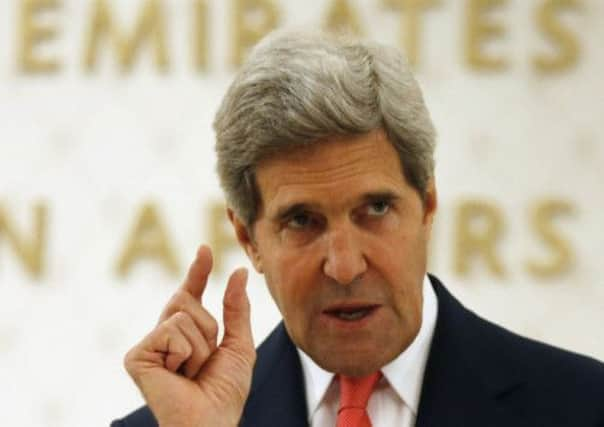Iran and UN agree nuclear inspectors deal


Although the deal is a step forward in Iran’s co-operation with the UN nuclear watchdog agency, the initial “roadmap” does not mention some of the sites most sought by UN teams, notably a military facility outside Tehran, to investigate suspicions of nuclear-related work.
Iran was quick to promote the agreement, announced at a joint news conference, as a sign of progress towards reaching a broader accord with world powers when talks resume next week. But the greater access is to unfold over a three-month timetable, which may not be enough to bridge the range of differences with the West that emerged during negotiations that stalled over the weekend.
Advertisement
Hide AdAdvertisement
Hide AdThe deal was struck yesterday during talks in Tehran with UN nuclear watchdog Yukiya Amano, whose initiative parallels more far-reaching efforts by the six world powers to reach an accord that would ease western concerns that Iran could one day develop nuclear weapons – an assertion Iran denies.
In Abu Dhabi, US Secretary of State John Kerry dismissed claims of serious rifts within the six-nation bloc, saying their positions were united and Iran was not able to accept latest offers made during talks in Geneva “at that particular moment”, suggesting there was room for more progress at the next round.
The pact reached yesterday certainly contributes to the chances of a larger deal. Inspectors from the International Atomic Energy Agency (IAEA), have been working in Iran for years, but have complained of limitations in reaching some sites and personnel.
The framework would give IAEA teams access to a key uranium mine and the site of a planned heavy water reactor. Inspectors have already visited, but seek more extensive access.
The IAEA also received clearance for a visit to the Gachin uranium mine near the Persian Gulf port of Bandar Abbas.
The deal also calls for Iran to provide more details on its nuclear programme, including all planned research reactors. Such facilities use 20 per cent enriched uranium, which is the highest level acknowledged by Iran and a key aspect of the ongoing nuclear talks. Halting the 20 per cent enrichment – which is several steps away from weapons-grade uranium – is a key goal of western envoys, for which they may offer Iran a possible easing of sanctions.
Access to the planned heavy water site is perhaps the central concession. During the weekend talks in Geneva between Iran and six world powers, France insisted more controls were needed on the reactor under construction in the city of Arak. Plutonium can be used in nuclear weapons production, but separating it from the reactor by-products requires technology Iran does not currently possess.
Iran’s nuclear chief, Ali Akbar Salehi, said the pact is intended as “a roadmap that clarifies the mutual steps required for resolving the outstanding issues” – points repeatedly raised by president Hassan Rouhani since he took office in August.
A joint statement by Mr Salehi and the UN’s Mr Amano said both sides seek to “co-operate further … to resolve all present and past issues”.